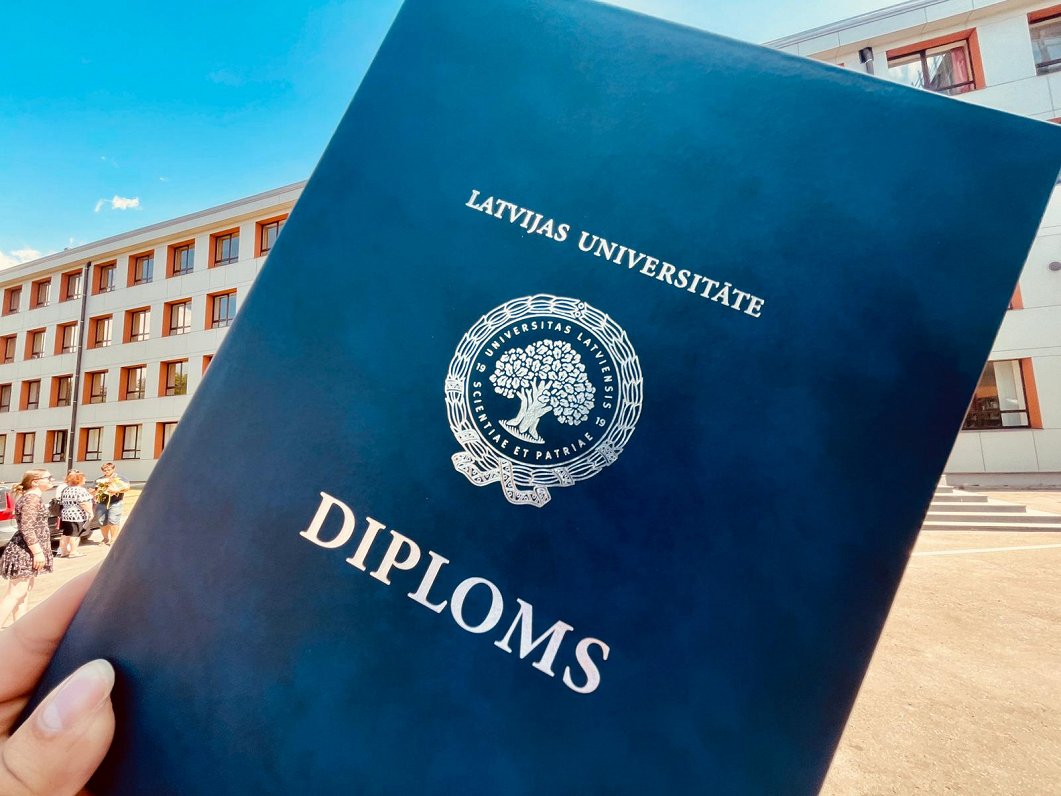The agreement provides for mutual recognition of higher education diplomas issued in Latvia, Lithuania, Estonia, Belgium, the Netherlands and Luxembourg without any additional procedures. Elsewhere in Europe, this example is being viewed with interest but also with caution.
Studying abroad is becoming increasingly common. However, young people often face costly and time-consuming diploma recognition when starting the next level of education or entering the workforce.
That's why for several years now there have been separate agreements between the Baltic States and also between Belgium, the Netherlands and Luxembourg, or Benelux, on the automatic recognition of diplomas issued between them. Now the two regions have also agreed among themselves, so that automatic recognition will already take place between six countries.
Silvija Reinberga, Parliamentary Secretary at the Ministry of Education and Science (New Unity), promises that no additional bureaucracy will really be needed: "Education obtained between the Baltic and Benelux countries will be automatically recognized without any additional procedures. There will be no need to go anywhere, do anything. Recognition will be automatic."
The exceptions are the regulated professions, which include doctors, lawyers, and architects. Their diplomas will still need to be officially recognized. But the authors hope the treaty will make recognition easier.
Caution still needed elsewhere in Europe
The Baltic and Benelux countries also hope that other European countries will join their initiative. They are currently looking on with interest but caution.
Helene Peterbauer, a policy analyst at the European University Association, said: "There is often a misconception that automatic recognition of diplomas means automatic admission, which means that universities lose control of the admissions process. Others think it means automated recognition, i.e. through technology. They fear losing flexibility and control over the admission process, but at the same time they understand that automatic recognition implies something more. So they would like more information and guidance, especially from the state."
Many students wonder why higher education diplomas are not automatically recognized in Europe, where after the Bologna reform there are bachelor's, master's, and doctorate degrees almost everywhere. Horia Onita, President of the European Students' Union, was able to explain that this is partly due to the fact that many of the Bologna requirements are only met on paper.
"But when you look deeper, you see that many things are not in place. That's why countries don't fully trust each other's diplomas, because between them they know very well that everybody says in words that they have everything in place, but in reality they haven't quite done it," said Onita.
The head of the European Students' Union also pointed out that it is often unclear to students why they have been refused admission - because of insufficient knowledge or because of an invalid diploma. It is therefore not possible to challenge the decision.
For her part, Silvija Reinberga of the Ministry of Education added that the recognition of diplomas is still necessary because of bad faith.
"In our experience, there have been cases where documents have been forged and forgeries can be very good. So it is important that we have common systems where we eliminate the possibility of such dishonesty because the recognition is automatic. We know and can trust that the education has been acquired, that the grades earned are appropriate and correct and that the person can go on with their education to work in the Baltic and Benelux countries, including Latvia," said Reinberga.
Ireland, Slovenia, Poland and the Scandinavian countries have expressed interest in joining the automatic recognition of diplomas.





























